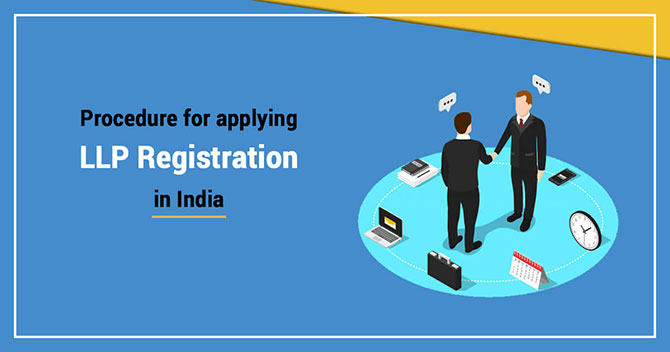![]() Self-registration LLP
Self-registration LLP
 Self-registration LLP:
Self-registration LLP:
Limited Liability Partnerships (LLPs) have become a popular choice for entrepreneurs and small businesses due to their flexibility and tax advantages.
Understanding LLP Formation
LLP formation involves several steps, including choosing a business name, drafting a partnership agreement and filing registration documents with the appropriate government agency. While it is possible to complete these steps independently, there are important considerations to keep in mind.
Choosing a Business Name:
The first step in registering an LLP is choosing a unique business name that complies with legal requirements and reflects your brand identity. You can conduct a name search to ensure the availability of your both chosen name and reserve it if necessary. While you can do this on your own, it’s essential to understand naming rules and restrictions to avoid potential issues.
Drafting a Partnership Agreement:
A partnership agreement outlines the rights, responsibilities and obligations of LLP partners, including profit-sharing arrangements, decision-making processes and dispute resolution mechanisms. While not always required by law, having a well-drafted partnership agreement is crucial for clarifying expectations and protecting the interests of all partners. While you can draft a partnership agreement yourself, seeking legal guidance is advisable to ensure that it covers all necessary provisions and complies with applicable laws.
Filing Registration Documents:
To register an LLP, you’ll need to file registration documents with the appropriate government agency in your jurisdiction, such as the Secretary of State’s office. These documents typically include a Certificate of Limited Liability Partnership or similar form, along with any required fees. While you can prepare and file these documents yourself, it’s essential to follow the specific filing instructions and requirements outlined by the government agency.
To visit- https://www.incometax.gov.in
Considerations and Challenges
While it is technically possible to register an LLP by yourself, there are several considerations and potential challenges to be aware of:
Legal and Regulatory Compliance:
Registering an LLP involves navigating complex legal and regulatory requirements, including business entity laws, tax regulations, and licensing requirements. Failing to comply with these requirements could result in delays, penalties or legal issues.
Complexity of Documentation:
Drafting partnership agreements and registration documents requires attention to detail and a clear understanding of legal terminology. While template forms and online resources are available, customizing these documents to suit your specific needs may require professional assistance.
Risk Management:
LLP formation involves important decisions that can impact the liability and financial well-being of the partners. Seeking professional advice can help mitigate risks. It ensures that the LLP is structured in a way that protects the interests of all parties involved.
Seeking Professional Assistance
However, LLP formation and the potential risks associated with DIY registration, many entrepreneurs choose to seek professional assistance. Legal and financial advisors can provide valuable guidance and support throughout the registration process. They can help to ensure compliance with legal requirements and minimizing the risk of errors or oversights.
For further details access our website https://vibrantfinserv.com/

